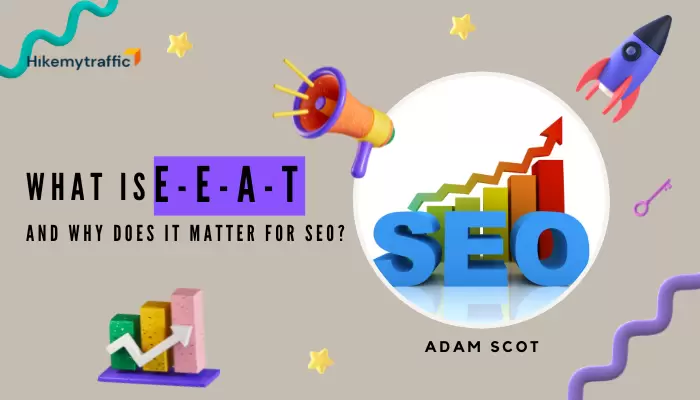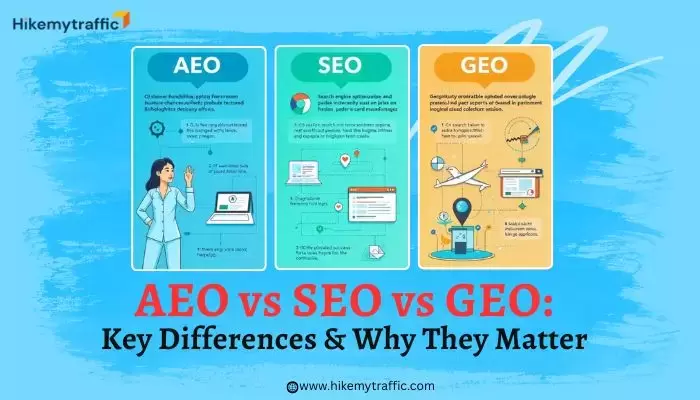The Importance of Anchor Text in Back-links
Search engine optimization is a complex field, but one aspect that continues to play a vital role is anchor text. If you’ve ever clicked on a highlighted word or phrase in a piece of content and landed on another page, you’ve interacted with anchor text. But what makes it so important for SEO? Why do digital marketers and SEO service providers put so much emphasis on the words used in links?
This blog explores the importance of anchor text in building backlinks and improving a website’s visibility in search engines. Whether you're new to SEO or an experienced marketer, understanding how anchor text influences rankings can give you an edge in your digital strategy.
What is Anchor Text?
Anchor text is the visible, clickable text in a hyperlink. It is usually blue and underlined by default, though it can be styled differently using HTML and CSS. When a user clicks on the anchor text, they are taken to another page or website. The destination could be a blog, a product page, a video, or any other digital content.For example, in the phrase learn more about our SEO service, the words “SEO service” could be linked to another page. That’s anchor text in action.Why Anchor Text Matters in Back-links
Search engines use many factors to determine the relevance and authority of a website. One of these key factors is backlinks. A backlink is a link from one website to another, and the anchor text used in that link can greatly influence how search engines interpret the relationship between the two pages.The importance of anchor text lies in its role as a signal. It tells search engines what the linked page is about. If many sites use the anchor text "best SEO service" to link to a specific page, Google assumes that page is likely related to SEO services and possibly even the best in that category.
How Anchor Text Affects SEO Rankings
The importance of anchor text in SEO becomes clearer when we examine how search engines rank pages. Search algorithms are designed to understand content contextually. When they see a link pointing to a page with relevant anchor text, they associate that keyword with the destination page.Let’s say your website offers digital marketing tutorials. If multiple websites link to your blog post using the anchor text "SEO basics," Google interprets your page as a valuable resource on that topic. This can lead to higher rankings for related search queries.
Anchor text isn’t the only factor in rankings, but it is a strong one. When combined with quality content and relevant backlinks, optimized anchor text can significantly improve a site’s visibility.
Types of Anchor Text
There are several types of anchor text, and each has its role in an SEO strategy. Understanding them helps in creating a balanced link profile.Exact Match
This is when the anchor text exactly matches the keyword you want to rank for. For example, if your target keyword is “SEO service,” then a backlink with the anchor text “SEO service” is an exact match.Partial Match
This type includes the target keyword along with other words. For instance, “affordable SEO service in Birmingham” is a partial match for “SEO service.”Branded Anchor Text
This uses the name of a brand, like “DigitalAka™ offers great SEO services.” It helps in building brand awareness and trust.Generic Anchor Text
Phrases like “click here” or “read more” are examples of generic anchor text. While they may not offer much SEO value, they are still commonly used in web content.Naked URLs
This is when the actual web address is used as the anchor, such as “www.example.com.” It doesn’t carry keyword value, but can still pass link equity.Image Anchor Text
When an image is used as a link, the alt attribute of the image serves as the anchor text. It’s another area where optimization is often overlooked.Over-Optimization and Penalties
While using anchor text effectively is important, overdoing it can backfire. In the past, some marketers abused exact match anchor texts to manipulate rankings. As a result, search engines updated their algorithms to detect unnatural link patterns.Google’s Penguin algorithm, introduced in 2012, specifically targets over-optimized anchor text. If too many links use the same match keyword, it may look suspicious. A balanced and natural anchor text profile is key to avoiding penalties.
So, the importance of anchor text in SEO isn’t just about using the right keywords, but also about maintaining diversity and naturalness.
Anchor Text and Link Context
Anchor text doesn’t exist in isolation. The surrounding content also influences how search engines interpret a backlink. For example, if the anchor text says “SEO service,” but the paragraph is about gardening tools, it confuses the context.The more relevant the surrounding content is to the anchor text and the linked page, the more value that link carries. This relationship between link context and anchor text helps search engines understand the true intent of a hyperlink.
Anchor Text and User Experience
While much of SEO focuses on algorithms, user experience should not be overlooked. Anchor text plays a role in helping users navigate content. When users see clear and descriptive anchor text, they know what to expect when they click.Vague or misleading anchor text can lead to higher bounce rates, lower user satisfaction, and reduced time on site. On the other hand, relevant and useful anchor text enhances the user experience and increases trust.
For instance, linking the phrase “learn more about our SEO service” to a service page makes sense to both search engines and users.
Anchor Text in Internal Linking
Anchor text is not just for backlinks from other websites. It’s also important within your own site. Internal linking with smart anchor text helps distribute link equity and guides users through your content.For example, if you write a blog about keyword research, you can link to another blog about on-page SEO using relevant anchor text like “on-page SEO strategies.” This strengthens the internal structure of your site and helps search engines crawl it more efficiently.
Using Anchor Text in SEO Campaigns
When planning an SEO campaign, anchor text should be part of your link-building strategy. Many SEO service providers use a mix of anchor text types to build a natural profile.
A well-optimized campaign might include:The goal is to make the link profile look organic and avoid patterns that trigger spam filters.
Monitoring Anchor Text in Back-links
It’s not enough to build links and forget them. SEO professionals often use tools like Ahrefs, SEMrush, or Moz to monitor anchor text distribution. These tools help identify overused anchors, toxic links, and areas for improvement.By analyzing anchor text trends, marketers can adjust their strategies to ensure a diverse and effective backlink profile.
Importance of Anchor Text in Local SEO
Anchor text also plays a crucial role in local SEO. When building backlinks for local businesses, it’s common to include the location in the anchor. For example, “SEO service in Birmingham” can help a business rank for location-based searches.Local directories, blogs, and community websites can provide high-quality backlinks with location-specific anchor text. This enhances both local visibility and overall SEO performance.How Google Understands Anchor Text Today
Over the years, Google’s understanding of anchor text has evolved. It no longer relies solely on the anchor text itself but also considers:That said, anchor text still provides a strong initial signal. A well-crafted anchor can help Google decide what a linked page is about, even before crawling it fully.Common Mistakes in Anchor Text Usage
Some common mistakes to avoid include:Avoiding these pitfalls ensures that your anchor text strategy helps rather than harms your SEO efforts.Future of Anchor Text in SEO
As search engines become smarter, the role of anchor text may continue to evolve. AI and natural language processing are helping search engines understand content in deeper ways. However, the basic principle remains the same: descriptive, relevant anchor text provides value to both users and algorithms. Anchor text is likely to remain a part of SEO best practices for the foreseeable future. Its influence may shift, but its importance in anchor text in SEO strategies will not disappear.Conclusion
To sum up, the importance of anchor text in backlinks cannot be overstated. It helps search engines understand what your content is about, improves your chances of ranking for target keywords, and enhances the user experience. From exact match to branded anchors, each type plays a role in a well-rounded SEO strategy.Whether you’re managing your own website or working with a professional SEO service, paying attention to anchor text can make a big difference. It’s a small detail that has a big impact one that can influence rankings, traffic, and credibility online.
By crafting smart, relevant, and natural anchor text, you not only help search engines but also guide your audience to the content that matters most.
FAQs
Here are some of the most frequently asked questions-
Anchor text is the clickable text in a hyperlink that leads to another webpage. It helps search engines understand what the linked page is about.
Anchor text is important for SEO because it helps search engines understand the context and relevance of the linked page. When a hyperlink uses descriptive and keyword-rich anchor text, it signals to search engines what the destination page is about.
Anchor text in backlinks signals what the linked page is about, helping search engines determine relevance and authority.
Anchor text affects search rankings by acting as a signal to search engines about the topic and relevance of the linked page. When multiple high-quality websites use specific anchor text like “SEO service” to link to a page, search engines assume that the page is authoritative and relevant to that keyword.
Types include exact match, partial match, branded, generic, naked URLs, and image anchor text (via alt tags).
Exact match anchor text uses the precise keyword you want the linked page to rank for, like “SEO service.”
Yes, too much exact match anchor text can hurt SEO.
While using exact match anchor text (where the link text exactly matches your target keyword, like “SEO service”) can help search engines understand what your page is about, overusing it sends a red flag to search engines, especially Google.
Partial match includes the target keyword along with other words, like “best SEO service for small business.”
Share:
Let’s Design Your New Website
Do you want to have a website that stands out and impresses your clients? Then we are ready to help! Click the button below to contact us and discuss your ideas.







Goutam Singh